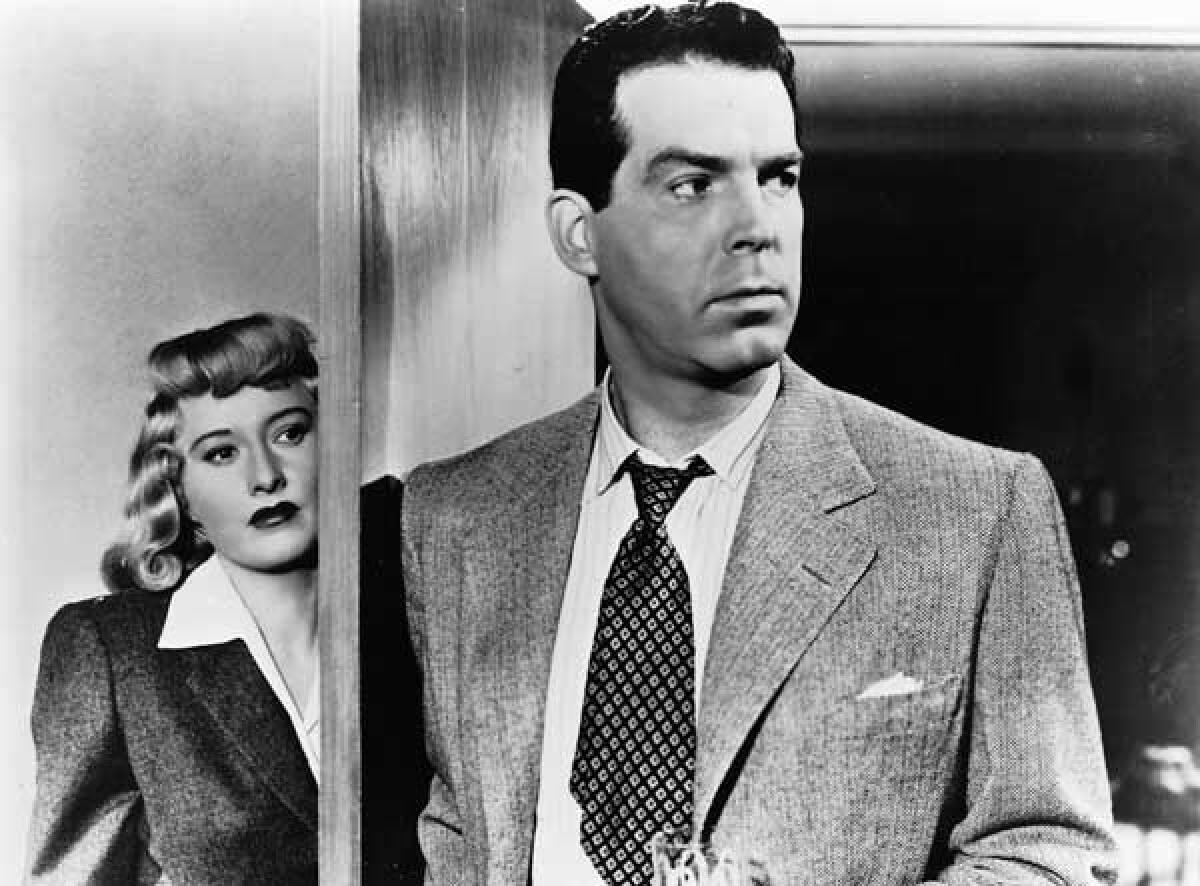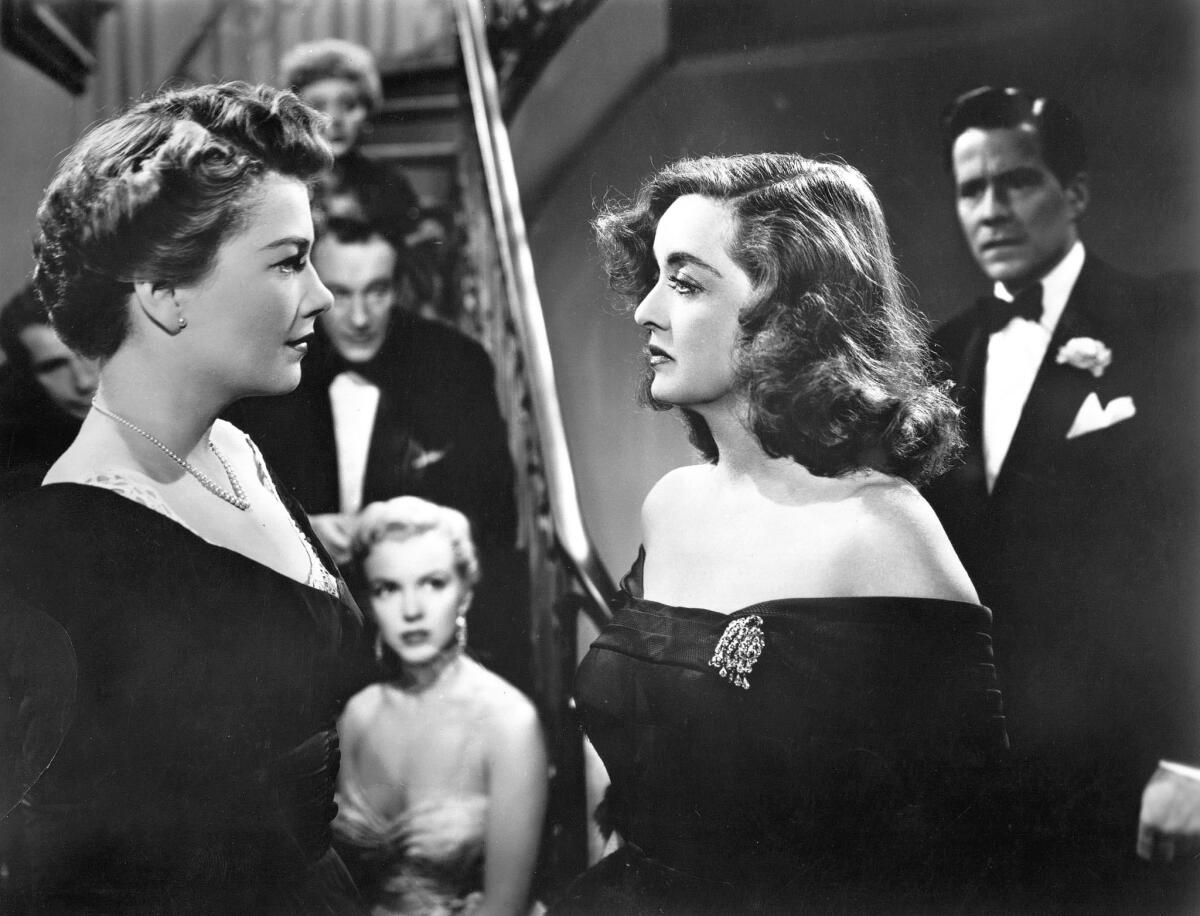‘La La Land’ is an L.A. love letter, but at Oscar time, the academy usually takes Manhattan
“La La Land,” Damien Chazelle’s musical love letter to Los Angeles, is the clear favorite in this year’s Oscar race after earning 14 nominations, including nods for best picture, director, actor and actress.
But when it comes to winning the Academy of Motion Picture Arts and Sciences’ top award, location hasn’t favored the Oscars’ hometown. In fact, Oscar history has proved that academy members will take Manhattan over Los Angeles.
Case in point, the fledgling academy awarded the second best picture Oscar to the 1929 musical “The Broadway Melody.” And over the years such New York-centric films as 1936’s “The Great Ziegfeld,” 1945’s “The Lost Weekend,” 1960’s “The Apartment,” 1961’s “West Side Story,” 1971’s “The French Connection,” the 1972 and 1974 “The Godfather” epics and 1977’s “Annie Hall” all earned the best picture Oscar.
It wasn’t until the 77th Oscars on Feb. 27, 2005 that a Los Angeles-based film, Clint Eastwood’s 2004 boxing drama “Million Dollar Baby,” earned the top prize.
Since then there have been a few L.A.-set movies that won top honors, including 2005’s “Crash,” 2011’s “The Artist” and 2012’s “Argo,” which is also set in Iran. But why did it take so long for Hollywood to honor films set in its own backyard with the coveted best picture Oscar?
It certainly wasn’t because there weren’t great movies set in the City of Angels. The original 1937 “A Star Is Born” was nominated for best film, as was Billy Wilder’s landmark 1950 “Sunset Boulevard,” Roman Polanski’s iconic 1974 noir “Chinatown” and Curtis Hanson’s 1997 crime thriller “L.A. Confidential.” And such lauded L.A. films as Vincente Minnelli’s 1952 “The Bad and the Beautiful” and Gene Kelly and Stanley Donen’s beloved 1952 musical comedy “Singin’ in the Rain” weren’t even nominated for best picture.
Film historian and critic Leonard Maltin offers this theory as to why the academy has chosen New York over L.A. for best picture so many times: “It is possible that since Hollywood is hometown to so many of the academy members, almost anyplace else seems more exotic and interesting.”
Richard Jewell, a professor for over 40 years at USC’s School of Cinematic Arts, thinks some of the Oscar choices reflect what he calls “extraordinary myopia” when it comes to the film awards.
He pointed out that the sentimental 1944 “Going My Way,” which was set in New York and stars Bing Crosby and Barry Fitzgerald as two priests, won the best picture Oscar over Billy Wilder’s Los Angeles-themed seminal film noir “Double Indemnity,” starring Barbara Stanwyck and Fred MacMurray as murderous illicit lovers. It is “Indemnity,” not “Going My Way” that has stood the test of time, noted Jewell.

And so of course has “Singin’ in the Rain,” perhaps the most beloved musical of all time. Cecil B. DeMille’s circus epic “The Greatest Show on Earth” was the best picture winner that year. “Who watches the ‘Greatest Show on Earth’ anymore?” asked Jewell.
Former studio executive and film historian Michael Schlesinger believes New York became a favorite location early on because “New York was the center of the country. All the entertainment was there, the studio offices were there. They were only out in California because of the year-round sunshine. All the marketing and distribution was back in New York.”
Several New York movies that won the best picture Oscar, offered Schlesinger, “could have taken place in L.A. They just didn’t. ‘Going My Way,’ for example,’ or ‘Gentleman’s Agreement’ or ‘The Lost Weekend’ or even ‘Marty,’ all of these films weren’t necessarily defined by their locale.”
But this isn’t just a tale of two cities. Since its infancy, cinema has always journeyed to international sites and allowed audiences to travel back to pivotal epochs in our history. Over the decades best-picture winners have been set in such locales as France (1951’s “An American in Paris,” 1958’s “Gigi”), Civil War-era Georgia (1939’s “Gone With the Wind”); England (1940’s “Rebecca,” 1964’s “My Fair Lady,” 2010’s “The King’s Speech”), Burma (1957’s “Bridge on the River Kwai”), the South Pacific (1935’s “Mutiny On the Bounty”) and India (1982’s “Gandhi,” 2008’s “Slumdog Millionaire”).
Said Jewell: “I think there’s also the sense of the magic of the movie with a number of these films. ‘Mutiny on the Bounty,’ for example, is set in an exotic location, but yet was [partly] filmed here. There’s this sense of magic of the people who are voting for the awards appreciating the fact that the industry can create this magic world and not even go there to shoot.”
And perhaps “La La Land” will win the top Oscar because the director has created this magic world — right in Hollywood’s hometown.
-----------
NEW YORK BEST PICTURE OSCAR WINNERS
“The Broadway Melody,” 1929
“The Great Ziegfeld,” 1936
“You Can’t Take It With You,” 1938
“Going My Way,” 1944
“The Lost Weekend,” 1945
“Gentleman’s Agreement,” 1947
“All About Eve,” 1950

“The Apartment,” 1960
“West Side Story,” 1961
“Midnight Cowboy,” 1969
“The French Connection,” 1971
“The Godfather,” 1972
“The Godfather Part II,” 1974
“Annie Hall,” 1977
(Some scenes in Los Angeles)
“Kramer vs. Kramer,” 1979
“Birdman,” 2014
LOS ANGELES BEST PICTURE OSCAR WINNERS
“Million Dollar Baby,” 2004
“Crash,” 2005
“The Artist,” 2011
“Argo,” 2012
(Some scenes in Iran)
Note: “Annie Hall” and “Rain Man” both had Los Angeles sequences.
More to Read
Only good movies
Get the Indie Focus newsletter, Mark Olsen's weekly guide to the world of cinema.
You may occasionally receive promotional content from the Los Angeles Times.











